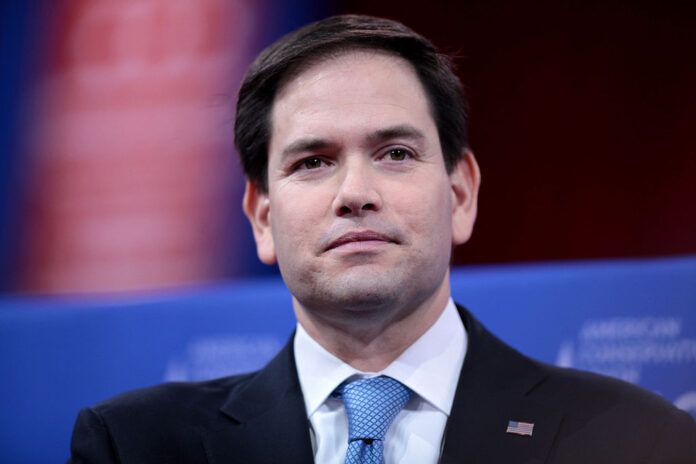Rubio accuses the administration of compromising diplomatic talks to pacify anti-Israel factions within the democratic party
In a controversial accusation, Senator Marco Rubio has charged President Biden with leaking a sensitive conversation with Israeli Prime Minister Benjamin Netanyahu to the public. This disclosure, Rubio claims, was an attempt to mollify anti-Israel and “pro-terrorist” elements within the Democratic Party. The allegations arose following a severe attack on Israel by Iran, which saw a significant escalation in regional tensions.
On a day marked by violence, Iran initiated an unprecedented aerial offensive against Israel, launching 170 drones, over 30 cruise missiles, and more than 120 ballistic missiles. Despite the scale of the attack, the damage within Israel was reported as minor, affecting structures like the Navatim Airbase, according to the Israeli Defense Forces. In response to these events, President Biden reportedly urged Netanyahu in a phone call to refrain from retaliating against Iran, a move aimed at preventing further escalation in the region.
Embed from Getty ImagesSenator Rubio, a Florida Republican, expressed his disapproval on CNN, suggesting that the leak of this private conversation was strategic, designed to position the White House favourably should Israel choose to respond militarily. Rubio criticized the Biden administration for what he perceives as a political manoeuvre meant to align with the demands of certain cease-fire activists, whom he labelled as neither peaceful nor objective in their intentions.
“The only reason they leaked that is so when Israel does respond, the White House can say, ‘We told them not to do it,’” Rubio stated, implicating the administration in a broader diplomatic “game” that he believes could undermine Israel’s standing and embolden its adversaries.
The senator’s comments also touched on the broader implications of such a leak, suggesting that it could encourage hostile actions from Iran and other groups in the Middle East, such as Hezbollah and the Houthis. By disclosing the discouragement of Israeli retaliation, the U.S. might inadvertently signal weakness to these groups, potentially inviting further aggression.
As the news of the alleged leak spread, reactions were mixed, with some supporting Rubio’s call for transparency and others cautioning against the potential fallout of such accusations on U.S.-Israel relations. The White House had not responded to requests for comment at the time of reporting.
This incident has sparked a fierce debate about the intersection of national security, diplomatic discretion, and political strategy, highlighting the complex dynamics at play in U.S. foreign policy and its impact on global geopolitical stability
